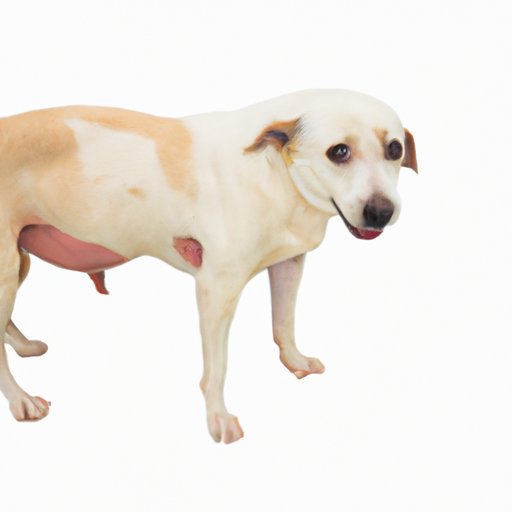
Introduction
Giardia is a parasite that can affect dogs and is often spread through contaminated water or soil. It can lead to severe gastrointestinal symptoms in dogs and can be difficult to diagnose without proper testing. Understanding the symptoms of Giardia is crucial for pet owners to ensure their dog receives appropriate medical treatment.
Understanding the warning signs of Giardia in dogs: A comprehensive guide
Giardia is a single-celled parasite that invades the small intestines of dogs and other mammals. The parasite can cause severe gastrointestinal symptoms in dogs, including diarrhea, vomiting, and weight loss. It can also cause dogs to have flatulence, and their stool may become greasy or malodorous.
Giardia is commonly spread through contaminated water or soil. Dogs often become infected by drinking from contaminated puddles, streams, or lakes. They can also become infected by consuming contaminated food, or through contact with the feces of other infected animals.
Early detection of Giardia is essential to ensure prompt treatment. Some of the most common symptoms of Giardia in dogs include:
- Diarrhea
- Vomiting
- Loss of appetite
- Weight loss
- Abdominal pain
- Bloating
- Flatulence
- Greasy or malodorous stool
Is your dog suffering from Giardia? Watch out for these symptoms
Dogs with Giardia may exhibit additional symptoms as the parasite progresses. One of the most significant side effects of Giardia is dehydration due to diarrhea and vomiting. It is essential to monitor dogs with Giardia for signs of dehydration, including dry gums, sunken eyes, lethargy, and reduced skin elasticity.
Pet owners should also be aware that some symptoms of Giardia can be similar to those of other common dog illnesses, such as pancreatitis and inflammatory bowel disease. Therefore, it is necessary to allow vet testing to ensure that the underlying cause of the dog’s symptoms is properly diagnosed.
If pet owners are concerned that their dog may have contracted Giardia, they should seek veterinary care as soon as possible. Testing should be conducted as soon as possible to help ensure that treatment is started promptly.
Giardia in dogs: How to identify and treat the illness
Diagnosing Giardia in dogs is challenging, primarily because the parasite is microscopic and can be challenging to detect in stool samples. Your veterinarian will need to conduct a physical exam, collect a sample of your dog’s stool, and conduct tests to identify the parasite. Bloodwork or other laboratory tests may also be conducted to rule out other potential causes of your dog’s symptoms.
Treatment for Giardia typically involves antiparasitic medication, such as fenbendazole or metronidazole. Pet owners should provide a balanced diet, including fiber and probiotics, to aid in the healing process. Adequate hydration is also vital to keep the dog’s organs functioning correctly. In severe cases, hospitalization or intravenous fluids may be necessary to maintain hydration.
To prevent re-infection, pet owners should ensure their dog abstains from contaminated water sources and makes sure their surroundings are sanitized. A veterinarian may advise testing your dog for Giardia while they are receiving treatment to ensure it has been eradicated.
Giardia and your pet: What you need to know about the symptoms
Giardia can be spread from dogs to humans, making it an essential health issue. Pet owners exposed to Giardia should practice proper hygiene, including washing hands regularly with soap and water. If members of your household exhibit symptoms consistent with Giardia infection, notify a physician immediately for treatment.
Giardia can infect all dog breeds. However, puppies, seniors, and dogs with compromised immune systems are at higher risk of contracting the parasite. Pet owners should keep their dog’s immune system optimal by providing a nutritious diet, maintaining a healthy weight, and ensuring regular exercise and vet check-ups.
Beyond the basics: Recognizing lesser-known symptoms of Giardia in dogs
Unfortunately, Giardia presents with many symptoms similar to other canine illnesses, potentially making it difficult to identify. Pet owners should be aware of subtle indicators, including sudden weight loss, lethargy, loss of appetite, and visible physical weakness. Your veterinarian can provide advice and guidance on what specific symptoms to monitor to determine whether your dog may be affected by Giardia due to its microscopic nature.
The telltale signs of Giardia in dogs: A pet owner’s guide
Symptoms of Giardia can vary and present in several ways. Pet owners should be aware of the common signs of Giardia, including diarrhea, vomiting, loss of appetite, and abdominal pain. They should watch out for these signs, especially if they suspect their dog has recently been exposed to contaminated water, soil, or food.
If your dog is showing signs of Giardia, contact your veterinarian immediately. Early diagnosis and treatment will result in a positive outcome for your dog and ensure that they return to their healthy and happy selves.
Conclusion
Giardia is one of the most common parasites that can affect dogs, leading to severe gastrointestinal symptoms with potentially life-threatening effects. Understanding the symptoms of Giardia in dogs is essential for pet owners to ensure that their dogs receive prompt medical treatment.
Symptoms of Giardia can vary, and some may present similarly to other dog conditions, making monitoring your pet’s health vital. Pet owners should keep their homes and surroundings clean and uncontaminated to lower risks and promote their dog’s health and wellbeing.
It’s essential to seek veterinary care if you suspect your dog may have contracted Giardia. Be observant of any symptoms and act swiftly to help maintain a positive outcome for your furry friend.




